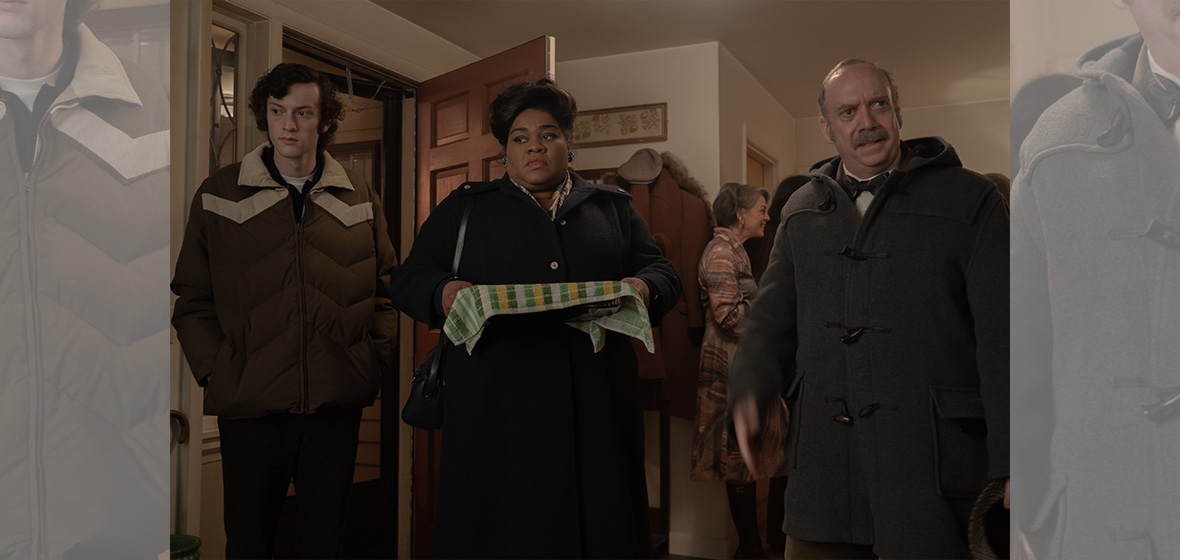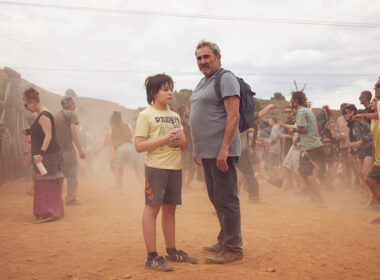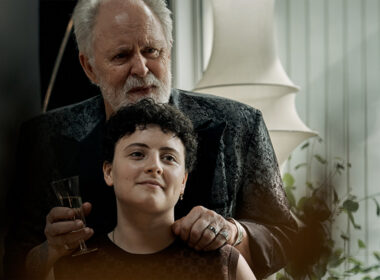A grumpy boarding school teacher is assigned to stay on campus during the holiday season to look after the pupils who cannot go home for the break. The premise of Alexander Payne’s new film won’t tell you the kind of film it is. It could be the starting point of a raunchy comedy about “boys being boys”. It could be a dramatic coming-of-age parable. Part of the appeal of The Holdovers is how it uses its effectively simple premise on a story that feels both familiar and unique.
The teacher is Paul (Paul Giamatti), who replaces a colleague as the chaperone due to an emergency. The excuse is a lie but unnecessary; Paul doesn’t seem to mind the fact – in fact, it’s like he relishes the idea of continuing to teach during the break. His colleagues don’t know him well; his students hate his draconian sternness and harsh methodology. His odour is off-putting, he has a distracting glass eye, and his personality could be described as obnoxious, patronising, and intellectual.
The students who stay behind are not happy. They’re all from affluent families who, for different reasons, cannot have them around for the holidays. Paul sees this as a chance to prepare them for the rest of the year, not considering that the disappointment of spending Christmas in school can only be made worse by the prospect of spending the break doing schoolwork. Fortunately, one of the students gets a way out and manages to invite the others with them, except Angus (Dominic Sessa), who now finds himself alone in school with the most hated teacher and the gentle head cook, Mary (Da’Vine Joy Randolph).
Payne treats his main characters with the respect no one else seems to give them. Despite the privilege or lack thereof they may have, no one’s trauma is diminished against the other. Mary is still dealing with the loss of her only son in the war, Paul still pays his dues for an incident that shaped his academic future, and Angus is a teenager navigating a father with several mental health problems, as well as an emotionally stunted mother.
All three are held back by forces they cannot control – social issues, economic circumstances, physical disabilities, disease – but Payne sees them as humans, and humans power on through the pain and the swamp of the status quo. The script’s strength is that Payne does not set out to find morality in this story but nevertheless gives all three characters a worthy send-off.
Payne is at his best when filming stories with a solid human heart. It’s why I never connected with The Descendants and Downsizing. But here he goes back to the same quiet composure he brought to Nebraska, Sideways and Election, where protagonists are broken and flawed. At the hands of someone less talented, we would call them unlikable, but Payne treats them with considerate respect, revealing a personality affected by the circumstances in which they live.
Giamatti was born to play the role. He adds humour without pantomime and carefully treads the line between satire and emotional depth. Randolph is also an absolute joy. Mary stands out because she’s always a reliable person who cannot express the sadness that consumes her. There’s a terrific moment when they go to a Christmas party, and an inebriated and emotional Mary takes control of the record player to play the tunes that meant a lot to her son. It’s a disarming moment, the first in the film, and it comes from the one character with self-awareness.
Payne thrives in stories like this. Very few filmmakers connect deeply to the American ethos like he does. There’s the idea of The Great American Novel, a piece of writing that thoroughly encapsulates the uniqueness of the American experience. Payne may be the closest to it we find in our era.
Verdict: 4.5 out of 5
A beautiful and tender slice of humanity with three powerful central performances and a script so layered it could have been written by Hal Ashby.




